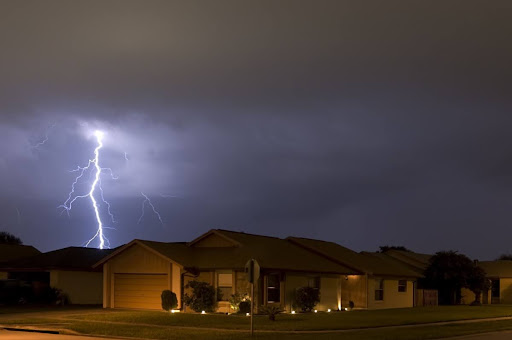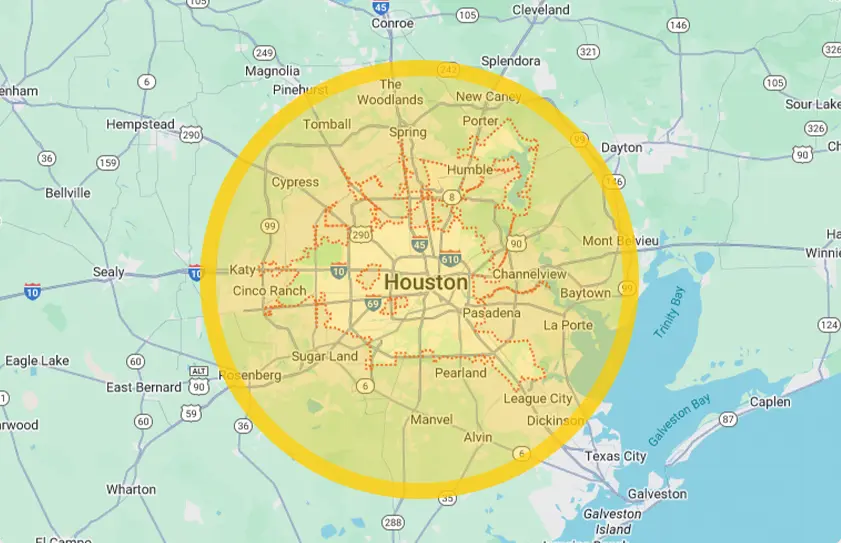It can happen when you least expect it. You’re winding down after a long day, maybe watching your favorite show or cooking dinner, and suddenly — everything goes dark. Your first thought might be a power outage, but the culprit could very well be a power surge.
Unlike power outages that we might see coming during a storm or from an overloaded circuit, power surges are sneaky. In many instances, power surges occur without warning and can cause significant damage to our homes and the devices we rely on daily.
Knowing what causes power surges can help you protect your electronics, prevent potential hazards, and avoid costly repairs. In this blog, we’ll break down what power surges are caused by and how you can shield your home from their damaging effects.
What Exactly Is a Power Surge?
Before diving into what power surges are caused by, let’s first clarify what a power surge actually is. In simple terms, power surges happen when there’s a sudden spike in voltage within your home’s electrical system. Under normal circumstances, the voltage running through your home is consistent and steady. But when a surge happens, this voltage jumps to a level that’s too high for your electrical devices and appliances to handle safely.
These spikes can range from small and almost unnoticeable to large enough to fry the circuit boards in your expensive electronics, such as TVs, computers, or even your refrigerator. The effects can be immediate, or they can accumulate over time, slowly degrading the performance of your devices until they eventually fail.
What Are Power Surges Caused By?
So, what causes power surges? The answer is not as straightforward as you might think, as there are several different triggers, both from within your home and from external sources. Here’s a closer look at the most common causes:
Lightning Strikes
One of the most powerful and unavoidable causes of power surges is a lightning strike. When lightning strikes near a power line, it can cause a massive surge of electricity to travel through the power grid and into your home’s electrical system. Even if the lightning strikes several miles away, the surge can still reach your home and cause damage to your electrical devices and appliances. Although lightning strikes are rare, they’re capable of delivering a surge strong enough to fry your electronics in an instant.
Power Outages and Grid Switching
Another cause of power surges is a sudden power outage or when the power company switches the grid. When the power suddenly goes out and then comes back on, it can send a surge through the electrical system as the power flow resumes. This is particularly common during storms or when the utility company is performing maintenance. The quick restoration of power can lead to a surge that affects everything connected to your home’s electrical system.
Faulty Wiring
Old or damaged wiring in your home is another common answer to the question of what causes power surges. If your home has faulty wiring, it can struggle to handle the flow of electricity, leading to inconsistent voltage levels. This can cause frequent electrical surges that may go unnoticed until they start damaging your electronics. If you suspect faulty wiring in your home, it’s crucial to have a professional electrician inspect your system to prevent any serious electrical issues.
Large Appliances and Electrical Overload
Large appliances, such as refrigerators, air conditioners, and washing machines, require a significant amount of power to operate. When these appliances turn on or off, they can cause a sudden demand for power, leading to a surge. This is especially true if these appliances are connected to the same circuit as other electronic devices. Overloading your electrical circuits by plugging in too many high-powered devices at once can also lead to surges, as your electrical system struggles to supply the necessary power.
External Power Surges
Power surges can also originate from outside your home. For instance, a problem at the utility company, such as downed power lines or issues with the power grid, can send a surge into your home. External power surges are often more severe than those caused internally, as they involve higher voltages that can travel long distances before reaching your home.
Signs of a Power Surge
Now that you know what power surges are caused by, it’s helpful to recognize when a power surge might have occurred in your home. Here are some common signs to watch for:
- Flickering or dimming lights: If your lights flicker or dim unexpectedly, it could be a sign of a power surge.
- Tripped circuit breakers: A surge might cause your circuit breakers to trip, cutting off power to certain parts of your home.
- Buzzing or humming from outlets: If you hear a buzzing or humming sound coming from your outlets, it could indicate that a surge has occurred.
- Burn marks or a burning smell: These are more serious signs that a surge has caused damage to your electrical system.
- Malfunctioning electronics: If your electronics start acting strangely or stop working altogether, it could be due to a power surge.
If you notice any of these signs, it’s important to take action to protect your home and your devices.
How to Protect Your Home From Power Surges
Understanding what causes power surges is the first step in protecting your home, but what can you do to prevent these surges from causing damage? Here are some effective strategies:
Unplug Devices During Storms
If a storm is approaching and you suspect lightning strikes, it’s a good idea to unplug sensitive electronic devices, such as your TV, computer, and home theater system. This simple step can prevent a damaging power surge from reaching your most valuable electronics.
Avoid Overloading Circuits
If you want to prevent internal power surges, be mindful of how much power you’re drawing from a single circuit. Avoid plugging too many high-powered devices into the same socket or using multiple extension cords to connect appliances. Distributing your electrical load across different circuits can help reduce the risk of surges.
Invest in Whole Home Surge Protection
For the ultimate protection against power surges, consider investing in whole home surge protection. This system is installed at your electrical panel and offers robust defense against both internal and external power surges. It can safeguard your entire home, from small electronic devices to large appliances, giving you peace of mind during storms and other power events.
Safeguard Your Houston Home From Power Surges
Power surges are unpredictable, but protecting your home doesn’t have to be complicated. By knowing what causes power surges and taking steps to prevent them, you can safeguard your valuable electronics and avoid the hassle of unexpected repairs.
For expert advice and professional electrical services in Houston, TX, including whole home surge protector installation, schedule a service with A1 Plus Electrical, Heating and Air. Our experienced electricians are here to help you. Reach out to us today and protect your home!



